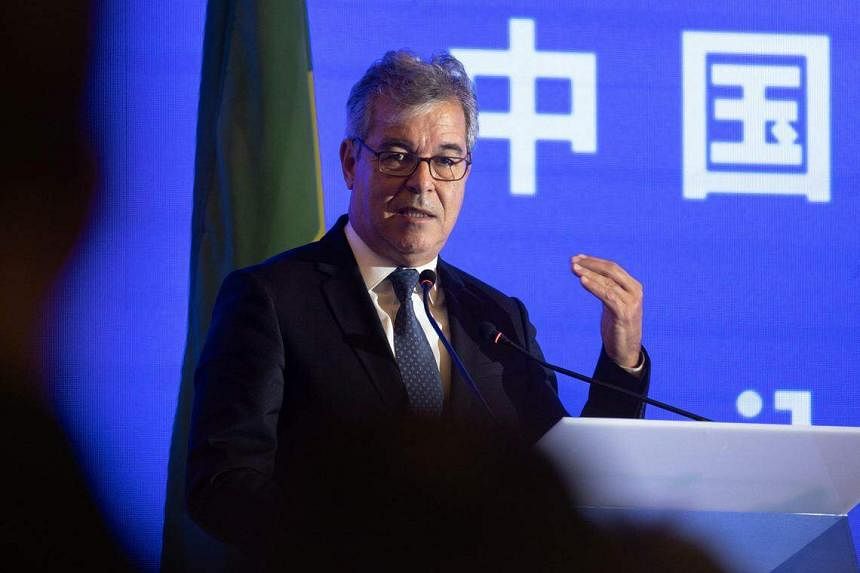China and Brazil have reached a deal to trade in their own currencies, ditching the US dollar as an intermediary
The deal will enable China, the top rival to US economic hegemony, and Brazil, the biggest economy in Latin America, to conduct their massive trade and financial transactions directly, exchanging yuan for reais and vice versa instead of going through the dollar.
:xicko:
Now the Belt and Road Initiative, please


Thanks for that explanation. Really. I never knew the part about the reserve bank.
So, in reality, they probably get some RNB to invest in manufacture, and the rest they use to buy treasury bonds, on which the US pays them some interest (in usd)?
And the US gets to use that money they get to do whatever they want.
So what happens then? Does the US need to pay back the entire amount some time in the future like you have to with loans?
I don’t even understand how all this started or why it’s there.
If you know of any Marxist/leftist person who goes into this modern financial hellhole in details, please let me know.
deleted by creator
Wow. First, thanks for the explanation.
And people do this because USD is safer. If your country is printing too much money, it means it needs to do something which it cannot currently afford and so it’s value is going to go down (wrt USD) so people buy USD as quickly as possible?
O.O
So, wait, the US basically did alchemy and converted dollar into gold - the one thing guaranteeing currencies remain compatible - but the US is the only one capable of making more of this new gold, and making it basically out of thin air with no effort needed.
And… the rest of the world just went along with it? Why didn’t the USSR do something? This was the 70s, right? They weren’t that stagnating yet. And China was still non-Nixoned.
What happens today if the US decides to print $1 trillion to, idk, buy Greenland. That would still decrease the value of USD right? But that’s not a threat anymore? What if China or another country tries to do the same? Will they face greater repercussions?
I will def check out that book and Michael Hudson’s other works.
TLDR: The US was massacring too many Viets and Koreans and were racking up a lot of debt because of that. They stopped pegging the dollar to gold, and now everyone had useless funny money in the vault. On the surface, this is good for those countries because now the USD is useless, but that means their own currencies are much more valuable thus products and services will become expensive. In order to combat those expenses, they have to prop up the dollar by trading in and buying USD , thus lowering domestic currency values which equals less expenses.
I would check out Superimperialism by Michael Hudson. It explains the origins of this mess. I don't know if it's the "definitive" book on the subject, but it was even used by the US government to help them understand their own financial domination.
His other works are also good for understanding modern finance speak. He has interviews , lectures, and podcasts that covers these things although most of them assume you're sorta familiar with what's going on. The one I linked is from Grayzone - they are cringe nowadays, but Ben Norton was an ex-writer there and has moved to an independent outlet which is much better. In many episodes he also summarizes or fully explains concepts that might bore veteran listeners, but good for newbies (or he'll link further info in the description box). Hudson is also a regular contributor to his show.
This is so darkly humorous. They don’t even know what they did, huh.
Thanks for the rec and the explanation!
I'm not sure if it's the same with global trade, but typically, yes, that's how bonds are paid back. The government takes your money and invests it themselves, or they use it to fund projects at home. Whether they make profit or get the money elsewhere, they're expected to pay back the investor the principal + the interest (which is usually low, but high enough to beat bank interests and somewhat keep up with inflation). Bonds are popular in order to protect the value of your money since it's relatively safer than stocks since it's the government that's paying you back. Although companies also hand out bonds too if they need funding. The typical saying I hear in investing is that if bonds aren't safe and the government can't guarantee payment back to you, then you have a lot more to worry about than bonds.